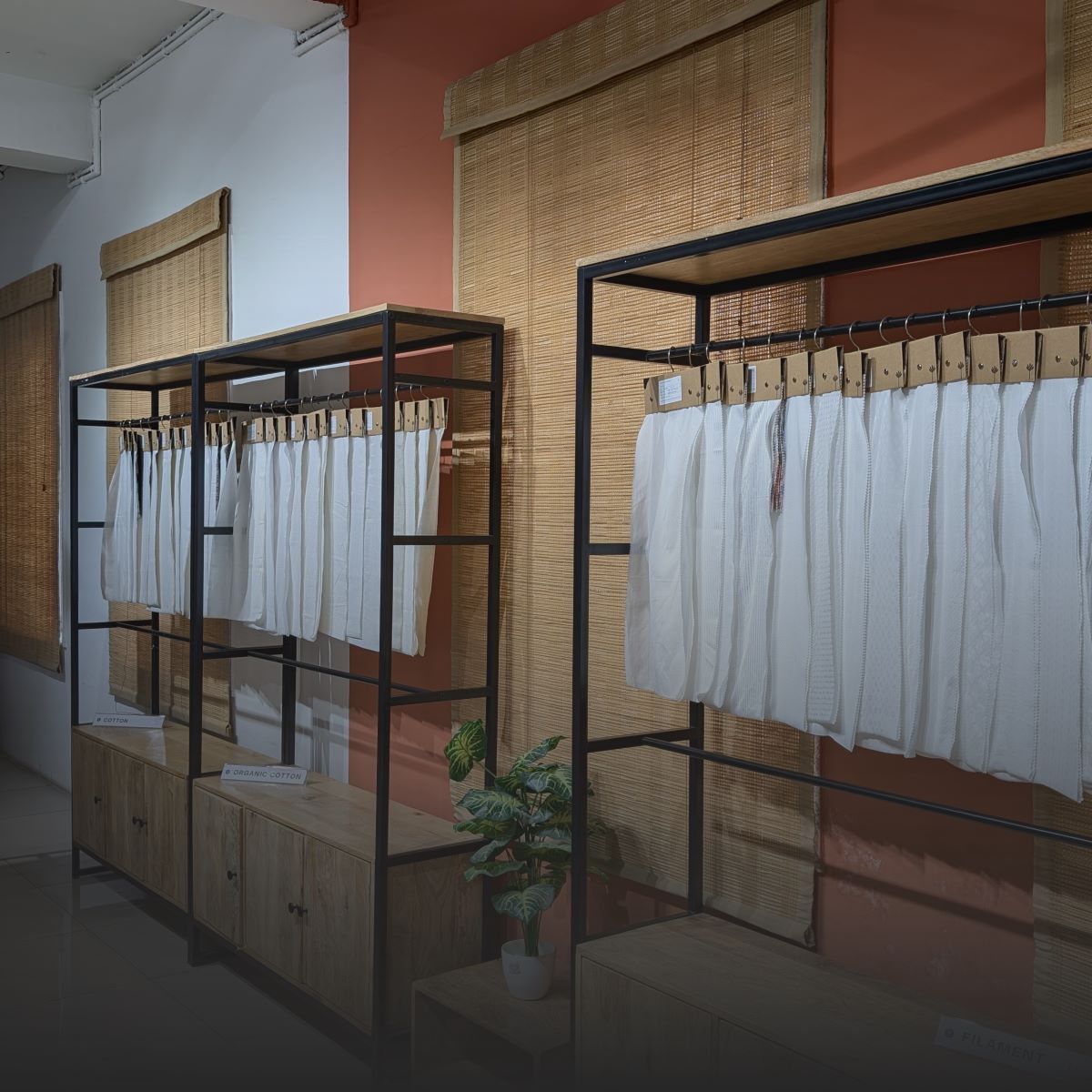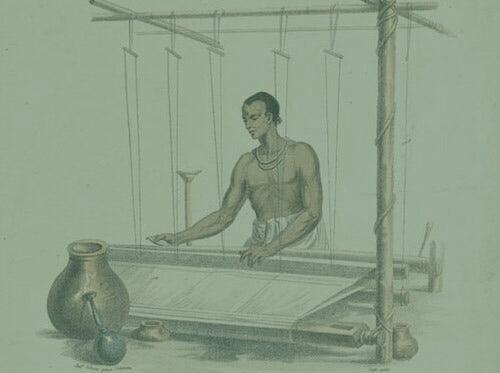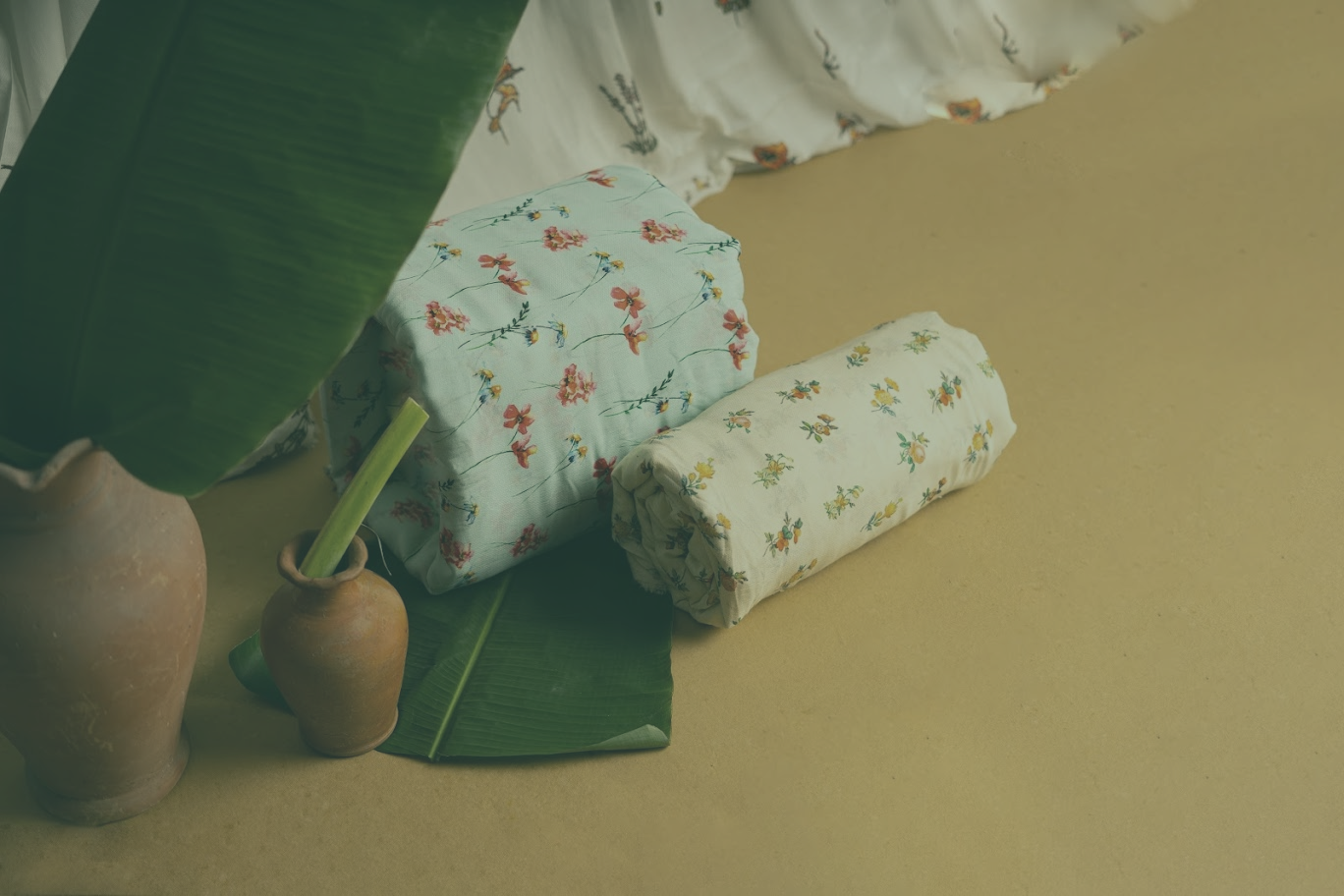A cloth so fine that yards of it could smoothly flow through a ring!
Born in the city of Dhaka in Bangladesh (then India), this popular and fascinating fabric was once no less than a treasure. Cherished across continents, Muslin was admired for its fine texture and easy falling, flowing quality.
A treasure in itself, it used to be weighed against gold in the European market in those days. A muse for poetry, often described as ‘Ábi Rawan’ meaning flowing water and ‘Baft Hawa’ meaning woven air, was the kind of mark that this beloved fabric had.
Origin of Muslin
It is said that the word ‘Muslin’ originated from the city of ‘Mosul’ (now in Iraq) where the Europeans learnt of its import from India, where this fine fabric was called ‘Mal Mal’. It is known that Muslin was so fine, that one yard of it barely weighed 10 grams and six yards of the fabric could pass through a ring!
Several paintings and other historical records and mythologies too mention traces of Muslin being used by the Greeks as much as by the Egyptians. And while it is unknown on when exactly did this heritage of fabric came into existence, what is known is that it was one fabric that was loved by the royalties and nobles alike, and anyone who could at all lay their hands on it.
The Mughals, connoisseurs of luxury, were no exception to it. Nor were the later coming kings and queens in Britain and France. As the times changed, it only rose to fame.
In the records of Indian History
Megasthenes, a Greek historian and ambassador in the court of Chandragupta Maurya laid praises for the fabric describing how it adorned the Indians. Several terracotta figurines in the modern day Bengal too give a vivid picture of how fine it must have been back in the ancient times.
The longer the length and lighter the weight, thus higher was the bid for it. Such a charm, those weavers of Muslin received rains of wealth.
The Dark fell
With the colonization, as opposed to trade, when the British had unquestioned access to the roots of Muslin production, much changed paving a way to a darker time for this heritage yarn. Once Bengal was taken over, and following the famines, taxes and ill fate, soon, this fabric had to fight for its existence against now much profitable fabrics being demanded by the Europeans.
Even the growth of special plant, White Corpus, particularly used in Muslin was also reduced, to the point that today that plant is extinct. Eventually, the original Muslin started to fall, leaving behind just the remains of it.
Ruins of a Glorious Past
As today we see aching ruins of several historical edifices across the country. From the Rajputs to Mughals, Mauryans to Portugese; all the architecture lost in the hustle bustle of the new age brick and masonry.
Similar is the fate of good old muslin. Once a ruler with it’s own kingdom, bright and sheer; now a plain cloth, this fabric now mostly supports the other finer ones.
A Conch Call Today
While the efforts are being made to hold the heritage and revive it back to its golden period, with organisations such as UNESCO facilitating Muslin its status as an intangible gem and cultural heritage of humanity. There is more that is asked of you and me by time.
While there will always be faster fabrics, but nothing equals to layering your skin with ages of legacy, of skills and finesse that comes with the handmade, generation to generation blessing of fabrics such as Muslin.
So now when you come across one, you know where it came from, you know what it behold, you know how precious it is, and you know, it is on you to lead it back to glory.




